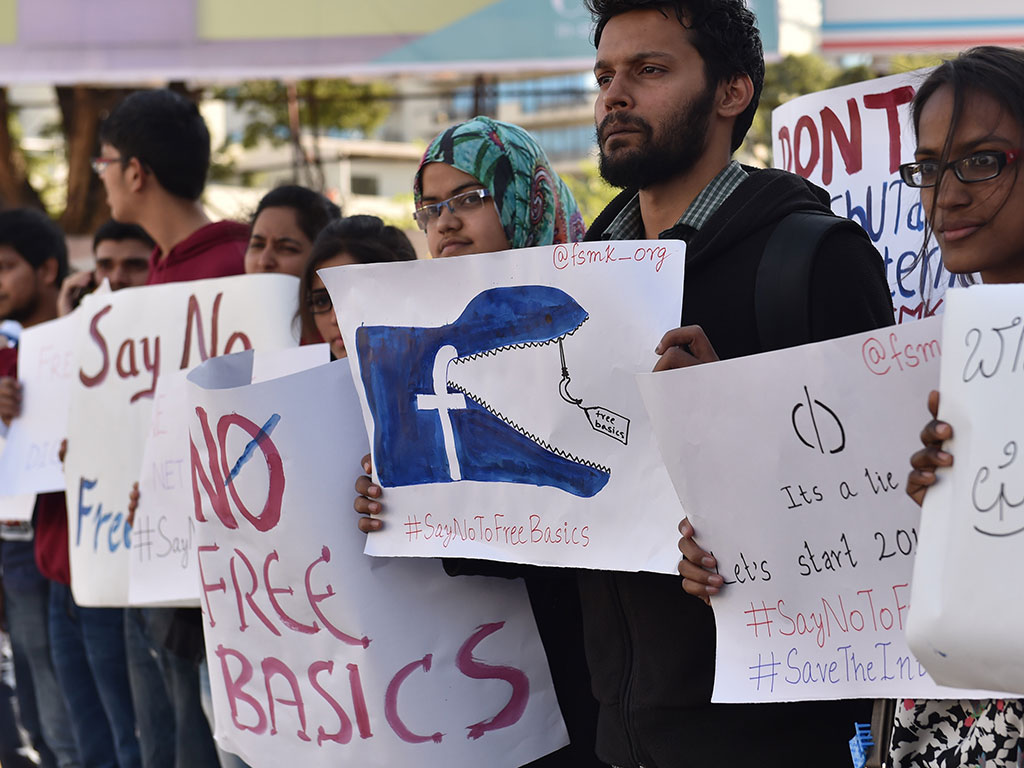India bans Facebook’s Free Basics
Facebook’s plan to provide free internet access to poor communities has been blocked by Indian regulators

Demonstrators from Free Software Movement Karnataka protesting against Facebook's Free Basics initiative in January. While Facebook said its programme would help improve education and create jobs, its opponents argued it violated net neutrality.
Mark Zuckerberg’s plan to provide free internet to the developing world has stumbled after Indian telecom regulators decided to block Facebook’s Free Basics initiative. The service, which provides free access to certain websites (including a limited version of Facebook’s social networking platform), caused much controversy when proposed and prompted public protests both for and against it.
The Telecom Regulatory Authority of India (TRAI) ruled that making some but not all web services available for free violated net neutrality and would give an unfair advantage to select internet services. “No service provider shall offer or charge discriminatory tariffs for data services on the basis of content”, the TRAI said in a press release on February 8.
Even at this low rate of connectivity, India is already Facebook’s second largest market
Free Basics offered access to more than 100 apps and sites, including local news and health websites, as well as weather forecasts, Wikipedia and the BBC.
The decision was supported by the World Wide Web Foundation, which emphasised the ruling’s particular importance given the size of India’s population and the precedent it sets for the rest of the world. “The message is clear: we can’t create a two-tier internet – one for the haves, and one for the have-nots. We must connect everyone to the full potential of the open web”, wrote Renata Avila, the organisation’s Web We Want programme manager.
While expressing his disappointment in a press release, Zuckerberg relayed his commitment to connecting millions of Indians in order to spread education, create jobs and help lift people out of poverty. At present, only around 18 percent of India’s 1.2bn citizens have access to the internet, according to the World Bank, making the market a huge opportunity for internet giants such as Facebook. Even at this low rate of connectivity, India is already the social media company’s second largest market.
While Zuckerberg’s philanthropic ambitions are certainly commendable, the idea of favouring some companies over others goes against the idea of a free market – a major hurdle when it comes to telecom regulations. As Avila wrote, the aim must be to connect everyone to the internet, but, without the help of Facebook and subsidisation from telecom providers, this is still a very long way off for India’s vast population.













